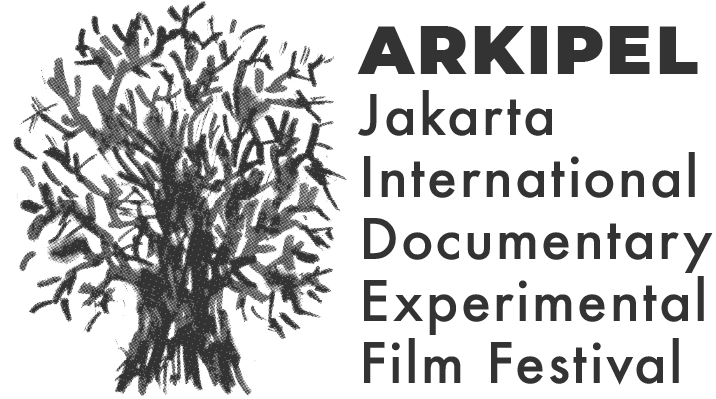Interdependensi; Konteks Globalisasi dan Bahasa Estetika Sinema di Asia
Beberapa program dalam ARKIPEL Grand Ilussion – 3rd Jakarta International Documentary & Experimental Film Festival 2015, kali ini berusaha membaca fenomena sinema di Asia secara kekiniaan. Pembacaan sinema Asia dalam konteks ini tidak luput mengamati pengaruh-pengaruh global, khususnya interdependensi dari situasi global ekonomi-politik antarnegara dan bahasa bentuk (estetika) dalam sinema. Program dalam membaca perkembangan sinema Asia kekiniaan tersebut, salah satunya, diisi oleh David Teh, seorang kurator dan peneliti seni di National University of Singapore dengan mengangkat tema Interdependensi (atau On Interdependence). Penayangan filem-filem dalam Program Kuratorial ini diadakan di Kineforum, Taman Ismail Marzuki (TIM), 24 Agustus, pukul 13.00.
Adapun beberapa filem yang dipilih oleh sang kurator, David Teh, dalam membaca perkembangan sinema Asia, adalah The Nameless karya Ho Tzu Nyen (Singapura), Suprematist Kapital karya Yin-Ju Chen & James T. Hong (Taiwan & Amerika Serikat), Western Digital karya Emile Zile (Belanda), Cutways of Jiang Chun Gen Forward and Back Again karya James T. Hong (Amerika Serikat), Blue and Red karya Zhou Tao (Tiongkok), dan thirdworld karya sutradara kontemporer asal Thailand yang cukup ternama Apichatpong Weerasethakul.
Berdasarkan karya-karya yang dipilih oleh David, tampak bahwa pengertian Asia bukan sekadar dari latar sang pembuat, namun juga terkait dengan bagaimana representasi Asia oleh sutradara dari negara lain di luar Asia. Seperti karya Western Digital, misalnya, adalah tentang penggambaran sebuah tradisi dari sebuah keyakinan Budha yang cukup kental di salah satu negara Asia Tenggara dalam konteks kekinaan yang sudah tidak luput dari globalitas turisme dalam respon-respon medium foto digital. Sementara pada karya lainnya, yang cukup menarik, seperti The Nameless, tampil sebagai semacam homologi dari bahasa sinema yang cukup dominan dari filem-filem yang dimainkan oleh seorang aktor ternama asal Hongkong, Tony Leung Chiu-Wai, dan konteks politik global dalam sejarah seorang tokoh dari Partai Komunis di Malaya yang memiliki nama alias atau samaran, yang dikenal sebagai Lai Teck. Dan karya menarik lainnya, tentu saja dari sutradara kontemporer Apichatpong, thirdworld, yang membuat gambaran dunia ketiga secara metaforis melalui jukstaposisi antara suara dan gambar, sebagai sebuah wilayah yang mungkin hanya bisa eksis dalam realitas filemis.
Korelasi dari kedua hal, antara globalisasi dan bahasa estetika, dalam membaca perkembangan sinema Asia dalam judul kurasi Interdependensi ini, sesungguhnya menawarkan sebuah bacaan baru dalam bahasa sinema untuk melihat realitas di Asia. David Teh sendiri, dalam pengantar kuratorialnya, menegaskan bahwa aksi pembacaannya lebih merupakan suatu penjelajahan (eksplorasi) ketimbang argumentasi belaka. Hal ini memang disebabkan oleh kecepatan ekonomi dan logika kebudayaan yang semakin luas dalam konteks globalisasi, sehingga sangat mungkin bagi suatu kerangka pembacaan untuk tetap berada dalam kerangka usaha-usaha yang memetakan perkembangan kaitan antara globalisasi dan bahasa sinema di Asia itu.
Di era digital yang semakin memandu cara orang berpikir dan bertindak, menurut David Teh, manusia masih memiliki kehendak bebas yang melampaui algoritma dalam dunia digital tersebut. Hal inilah yang menjadikan program ini penting karena dari keniscayaan globalitas, masih tersisa kemandiriaan sebuah identitas, baik sebagai individu maupun sebagai bangsa, untuk merefleksikan dirinya sendiri secara mandiri.
–
This time, some programs in ARKIPEL Grand Ilussion – 3rd Jakarta International Documentary & Experimental Film Festival 2015, trying to read the phenomenon of cinema in Asia with contemporary apporach. To read Asian cinema in this context, will also include to observe the global influences, especially the interdependence of global economic and political situation between countries and form languages (aesthetics) in the cinema. Program in reading the development of contemporary Asian cinema, one of them, is filled by David Teh, a curator and art researcher at the National University of Singapore with the theme of Interdependence. The films screening for this Curatorial Program was held in Kineforum, Taman Ismail Marzuki (TIM), 24 August, at 13.00.
As for some of the films chosen by the curator, David Teh, in reading the development of Asian cinema, are The Nameless by Ho Tzu Nyen (Singapore), Suprematist Kapital by Yin-Ju Chen and James T. Hong (Taiwan and USA), Western Digital by Emile Zile (Netherlands), Cutways of Jiang Chun Gen Forward and Back Again by James T. Hong (USA), Blue and Red by Zhou Tao (China), and thirdworld by a quite well-known contemporary director from Thailand, Apichatpong Weerasethakul.
Based on the selected works by David, it appears that the definition of Asia is not just from the background of the filmmaker, but also related to how the representation of Asia by the directors from other countries outside Asia. Like the film Western Digital, for instance, is about the depiction of a tradition of a Buddhist belief that is still quite thick in one of the Southeast Asian countries in the contemporary context,that has not been missed from globality of tourism in the response of digital photos medium. While in other films, which is quite interesting, as The Nameless, appears as a kind of homology of the language of cinema that is quite dominant from films who was played by a famous actor from Hong Kong, Tony Leung Chiu-Wai, and the context of global politics in the history of a character from Communist Party in Malaya which has an alias or pseudonym, known as Lai Teck. And other interesting film, is certainly from the contemporary director Apichatpong, thirdworld, which makes a picture of the third world metaphorically through the juxtaposition between sound and image, as an area that may only exist in filmic reality.
Correlation of these two things, between globalization and aesthetic language, in reading the development of Asian cinema in this curation title, Interdependence, in fact offers a new reading in the language of cinema to see the reality in Asia. David Teh himself, in his introduction curatorial, confirmed that his reading action is more an exploration, rather than a mere argument. It is indeed caused by the speed of the economic and cultural logic that is increasingly widespread in the context of globalization, so it is possible to maintain a reading framework within the framework of efforts to map the links between globalization and the development of cinema in the Asian languages.
In the digital era that increasingly guide the way people think and act, according to David Teh, human beings still have the free will that exceed the algorithms in the digital world. This is what makes this program is important because of the inevitability of globality, the remaining independence as an identity, both as individuals and as a nation, to reflect on itself independently.

